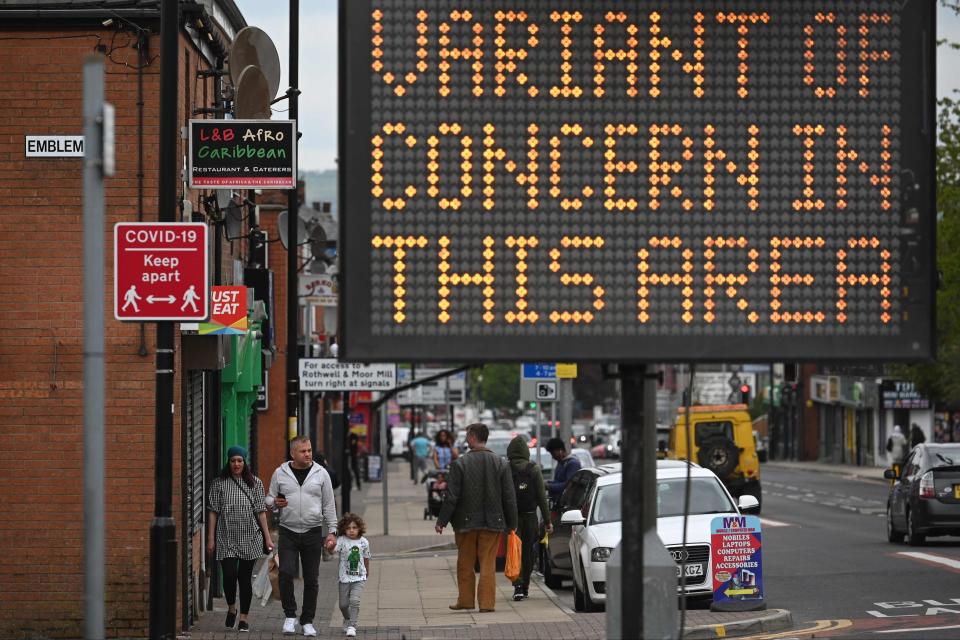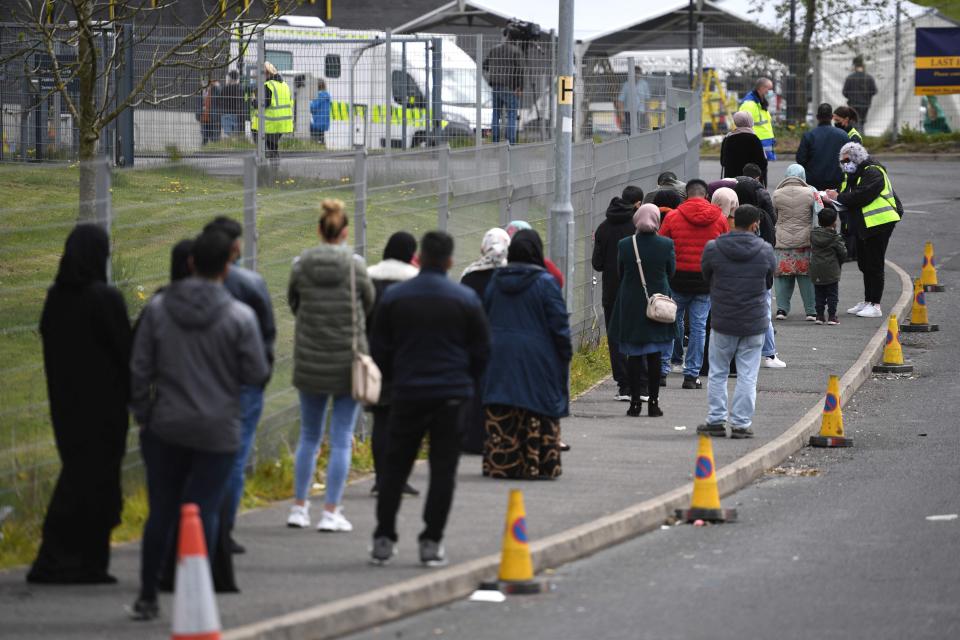Indian variant: Which countries have the highest cases?

Public health digital board warns the public of a Covid-19 variant of concern affecting the community in Bolton
(AFP via Getty Images)Concern is growing worldwide about the spread of the mutant Indian Covid variant.
India is seeing 350,000 new cases of coronavirus and 4,000 deaths a day as infections spread out of control.
Earlier this week the World Health Organisation said the Indian Covid-19 variant was a global concern, while Boris Johnson said it could post a serious threat to plans to ease lockdown.
Outside India, the UK has recorded the highest number of cases of the Indian variant, with 1,313 infections to date.
The US, Singapore and Germany are the only other countries to have sequenced more than 100 cases of the variant, also known as B.1.617+, according to the Gisaid Initiative.
But how is the variant impacting different countries?
Germany
Germany has detected 103 cases of the Indian variant.
The country’s health agency on Friday re-classified Britain as a coronavirus “risk area” over concerns about the spread of the variant in the country.
The move came after a report published by Robert Koch Institute on Wednesday found that the proportion of the variant in Germany “has been steadily increasing in recent weeks.”
Germany is currently experiencing a deadly second wave and introduced a travel ban from India with the exception of citizens and residents last month.
But despite the number of variant cases, the country is still going ahead with its plan to ease restrictions.
The government said on Friday that the number of infections per 100,000 had fallen to 96.5.

US
The US has detected 486 cases of the Indian variant, about half of which have been detected in the past four weeks.
The rise in cases prompted the government to prohibit travellers from India with the exception of legal permanent residents, spouses and close family members of US citizens.
Denmark
Denmark has confirmed 39 cases of the Indian variant, 11 in the last four weeks.
Tyra Grove Krause, the director of the State Serum Institute, Denmark’s national infection disease agency, said the variant was not currently a cause for concern within Denmark, the Guardian reported.
Since April 21, bars, cafes, restaurants, and other venues have been open to anyone who can show a negative test result taken with 72 hours or has been vaccinated.
Australia
Australia has detected 85 cases of the Indian variant.
On Friday, the country introduced coronavirus restrictions for New South Wales and greater Sydney, to last until 17 May.
They include a ban on more than 20 people gathering in private homes and compulsory mask-wearing in all public indoor spaces.
Singapore
Singapore has detected 156 cases of the Indian variant, more than two-thirds of which were identified within the past four weeks.
As a result, the country has introduced new lockdown measures.
From 16 May to 13 June, gatherings and household visitors have been reduced to two people from five. Employees have been instructed to work from home if they can, and indoor dining has been stopped.
Read More
Johnson warns of threat posed by coronavirus variants
Vaccination progress ‘could be reversed unless UK shares surplus vaccines’
Protesters call for AstraZeneca to share Covid vaccine technology

 Yahoo Finance
Yahoo Finance 